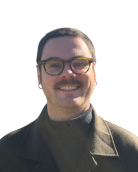Project Description
Home / Members / Graduate Students / Pascal Rodríguez-Warnier

RESEARCH AREAS:
Foundations and Philosophy of Physics
General Philosophy of Science
Metaphysics of Science
CONTACT:
ADDITIONAL PROFILES:
PASCAL RODRÍGUEZ-WARNIER
Doctoral Student,
Department of Philosophy, Western University
I am a PhD student in Philosophy (of Physics) at Western University. My interests span a broad range of topics within the foundations of physics and the general philosophy of science. My dissertation, supervised by Wayne Myrvold and Francesca Vidotto, is on the foundations of classical and quantum statistical thermodynamics.
I am particularly absorbed by how scientific theories are adapted and qualified when applied beyond their original domains, and by the ways in which different theories can collaborate to account for complex phenomena. These days I am looking, in particular, to cases related to thermal physics, including statistical thermodynamics, quantum thermodynamics, the thermodynamics of information, and quantum information theory. Another topic that captivates me is the relationship between agency and physics, and how this connection may give rise to various forms of perspectivalism.
I was a member of the Quantum Gravity at Western group and a fellow of the Quantum Information Structure of Spacetime (QISS) consortium (funded by the John Templeton Foundation). I am now a fellow of the Without Spacetime (WOST) project, also funded by the JTF, where I co-lead the Philosophy Programme with Chris Smeenk, which aims to foster dialogue and collaboration between the philosophy and physics communities.
Before joining Western, I received a MSc in History and Philosophy of Science from Utrecht University, and a BA in Philosophy from the University of Chile (my homeland).
Looking ahead, my main goal is to continue my research through engagement with the broader academic community, especially by learning from, and exchanging ideas with, my peers. I firmly believe that the best research emerges from friendly intellectual exchange and an open willingness to learn from one’s interlocutors—values that, I am convinced, can thrive specially in non-traditional academic contexts.
My current research focuses on the foundations of statistical thermodynamics and its intertheoretical relations. In my dissertation, I am exploring several interconnected projects: the physical significance of thermodynamic fluctuations, the links between thermal physics and information, the relationship between equilibrium and non-equilibrium thermodynamics, and the role of resource theories in understanding the relations among agency, information, causation, and the physical world. Drafts of papers, abstracts, and presentation slides are available upon request.
I have also worked on topics in the philosophy of quantum mechanics, particularly regarding its relationship with time symmetry. My intellectual environment has encouraged me to cultivate curiosity toward the all the different “interpretations” of quantum mechanics, recognizing both their insights and limitations. Nonetheless, I am especially drawn to interpretations that integrate most naturally with other physical theories.
2023 – “Temporal Global Correlations in Time Symmetric Collapse Models”, Foundations of Physics. https://link.springer.com/article/10.1007/s10701-023-00688-9
2020 – “Capacities, Causality, and Modality: Three Edges of the same Triangle”. Revista Colombiana de Filosofía de la Ciencia, 19(39), 147-174. (Written in Spanish) https://doi.org/10.18270/rcfc.v19i39.3026
2019 – “Capacities and Phenomenological Laws: The Experimental Dispositionalism”, with Cristian Soto. Revista de Filosofía, Universidad de Chile, 76, 185-201. (Written in Spanish) https://revistafilosofia.uchile.cl/index.php/RDF/article/view/55781
Teaching Assistant Graduate Level
2023 – The Quantum World. Professor in charge: Dr. Guido Bacciagaluppi. MSc in History and Philosophy of Science, Freudenthal Institute, Utrecht University. May-June.
Teaching Assistant Undergraduate Level
2025 – Understanding Science. Dr. Wayne Myrvold. Department of Philosophy, University of Western Ontario. September-December.
2025 – Introduction to the Theory of Knowledge. Dr. Robert DiSalle. Department of Philosophy, University of Western Ontario. January-April.
2024 – Philosophy of Science. Prof. in charge: Dr. Adam Koberinski. Department of Philosophy, University of Western Ontario. September-December.
2024 – Einstein for Everyone. Prof. in charge: Dr. Adam Koberinski. Department of Philosophy, University of Western Ontario. January-April.
2023 – Big Ideas. Prof. in charge: Dr. Robert DiSalle. Department of Philosophy, University of Western Ontario. September-December.
2023 – Einstein for Everyone. Prof. in charge: Dr. Chris Smeenk. Department of Philosophy, University of Western Ontario. January-May.
2022 – Understanding Science. Professor in charge: Dr. Wayne Myrvold. Department of Philosophy, University of Western Ontario. September-December.
2018 – Metaphysics. Professor in charge: Dr. Cristian Soto. Department of Philosophy and Humanities, Universidad de Chile. July-December. (in Spanish).
